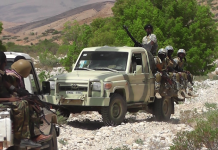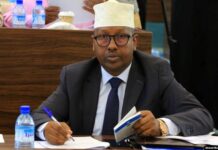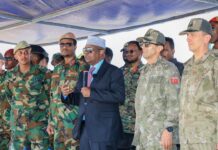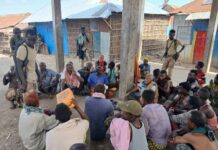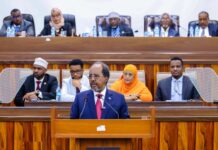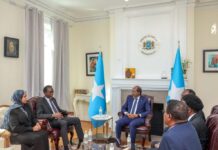A court in Somalia’s capital on Tuesday sentenced a woman to 15 years in prison for financing terrorism and laundering more than $1.2 million for the militant group Al-Shabaab, a significant verdict in the government’s escalating war on the insurgents’ financial networks.
The Banaadir Regional Court in Mogadishu found Nadifa Hassan Abdulkadir Abdulle guilty of membership in a terrorist organization, financing terrorist acts, and money laundering. In addition to the prison term, she was fined $20,000.
Prosecutors from the National Attorney General’s Office presented evidence showing that Nadifa had processed approximately $1,237,010 through her personal bank accounts. The funds were used to finance and execute the operations of the al-Qaeda-affiliated group, which has waged a deadly insurgency against the Somali state for over 15 years.
The court also ordered the immediate closure of all bank accounts registered in her name and mandated that the federal government seize all assets contained within them.
“The Office of the National Attorney General affirms its commitment to combating the financing of terrorism and money laundering,” the office said in a press statement following the verdict. It issued a stark warning that “anyone involved in such dangerous acts against security and statehood will be brought before the law to face justice.”
This high-profile conviction is a key part of a broader “total war” on Al-Shabaab declared by Somali President Hassan Sheikh Mohamud in 2022. The strategy targets the group on three fronts: military, ideological, and, crucially, financial.
The Somali government, with support from international partners, has intensified its efforts to disrupt the militants’ extensive financial empire. Authorities have shut down hundreds of bank and mobile money accounts suspected of links to Al-Shabaab, aiming to choke off the revenue streams that fuel its insurgency.
This financial campaign is considered a critical component of the ongoing military offensive that has seen Somali forces, backed by local clan militias, reclaim significant territory from the insurgents in the country’s central regions.
Despite territorial losses, Al-Shabaab maintains a sophisticated and resilient financial structure, often described as one of the wealthiest jihadist groups in Africa. According to a 2022 report by the Hiraal Institute, a Mogadishu-based security think tank, the group generates well over $100 million annually.
Its primary source of income is a pervasive system of extortion and “taxation” imposed on businesses, transportation, and agriculture, even in areas under government control. The group leverages Somalia’s widespread use of mobile money to collect these funds, making the financial trail difficult to track.
The United Nations Panel of Experts on Somalia has repeatedly documentedhow the group launders its illicit gains through investments in real estate and other legitimate businesses, integrating its operations deeply into the local economy.
The conviction of Hassan Abdulkadir Abdulle highlights the vital role individuals play as nodes in this complex network, using the formal banking system to move and conceal funds destined for terrorist activities.
By securing such convictions, the Somali government aims to deter others and signal a new level of scrutiny over financial transactions across the country.


